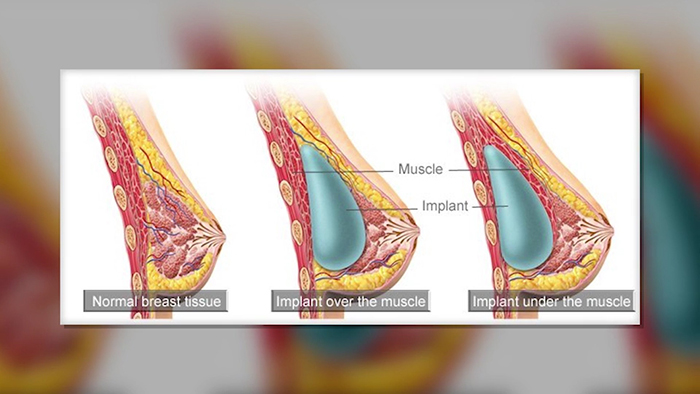When deciding whether or not to get a breast augmentation, there are many decisions that you’ll need to make, including size, shape, fill and implant position. The latter is one of the more confusing for many patients. Historically, the position of choice for most plastic surgeons was sub-glandular, where the implant is placed above the muscle. Things then shifted and the dominant position become sub-pectoral, where the implant is placed below the muscle. Recently, however, there’s been another paradigm shift back to sub-glandular. How does a patient know which position is best?
The Right Implant Position Depends on the Patient
Dr. Clifford Clark of Winter Park, FL firmly believes that when it comes to breast augmentation, “one size does not fit all.” There are pros and cons to each implant position and choosing the right one is going to depend on the needs and the anatomy of each individual patient. Over the muscle can be a great placement for the right patient. One of the biggest drawbacks to the sub-glandular position has been the potential for visible rippling of the implant. Now, thanks to new gel implants and the potential to add fat to the breast, this risk has been greatly reduced. Due to this, position the implant above the muscle, “is a much more valid position than it used to be with saline implants,” says Dr. Clark.

Fat Grafting Is A Game Changer
Dr. Bruce Van Natta of Indianapolis, IN agrees that deciding the best placement for an implant is going to depend on the patient. However, he has seen a lot of patients with older sub-glandular placement implants who wind up coming to see him complaining of thinning. As he explains, “I’ve always thought that breast implant surgery was all about soft tissue cover and the more the better, particularly in the upper part of the breast.” Sub-glandular placement has always been the norm for very fit, muscular women who are really thin because the implant will not distort when they move their chest muscles. However, he now must ask: What is the trade off 10 years down the road when they are no longer quite so fit, and thin? What are their implants going to look like then?

Dr. Clark has also seen issues with distortion in implants that are placed under the muscle, but again, different choices for different patients. “We can now add to the soft tissue envelope which is important,” he mentions. With current technology, when surgeons see patients whose soft tissue has thinned with time, they can restore the lost volume with fat grafting to the breast. Dr. Van Natta agrees that fat grafting, “has unquestionably allowed us to correct a multitude of problems.”
The most important thing is to find a surgeon with a lot of experience in breast augmentations who will take the time to sit down during the consultant and go over the pros and cons of each position. Together reviewing all of the options, you can make the right choice for your unique body.